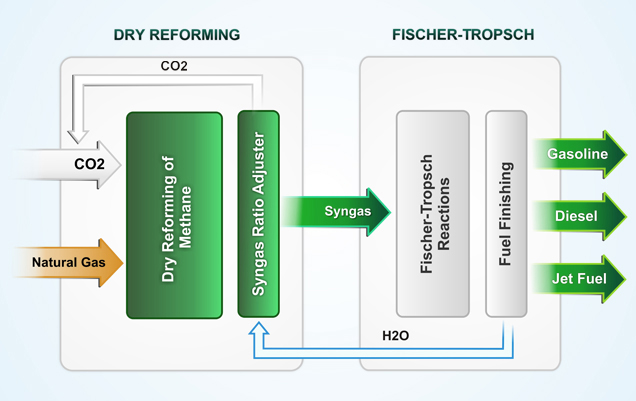Start-up transforms carbon into gasoline


Carbon gets a lot of flak for being a major contributor to climate change, and utilities are literally going great lengths to store it. A Santa Barbara headquartered start-up has given rise to a different approach: recycling carbon for fuel.
Carbon Sciences says that it has created a novel catalyst that will convert natural gas and carbon dioxide into gasoline. The process is a new twist on the Fischer-Tropsch gas-to-liquids process that the company says will provide industrial scale and significantly reduces costs. It is now preparing to commercialize the technology.
"After achieving very positive commercial test results for our catalyst, we are moving ahead aggressively to accelerate the production of larger quantities of the catalyst, as well as completing the technical and economic analyses in preparation for discussions with strategic partners,” said CEO Byron Elton.
The company has partnered with engineering firm Emerging Fuels Technology on a demonstration that will produce usable fuel samples, Elton added. Carbon Sciences says that fuel will burn cleaner than conventional diesel fuel, because it lacks the contaminants found within petroleum.
It calculates that its technologies will be cost competitive with US$80 per barrel crude oil, using natural gas as the feedstock.
There is no shortage of carbon for the process: coal-fired power plants emitted 1,866,813,072.1 metric tons of CO2 in 2007, according to the EPA.
Carbon Sciences has devised a plant level process that takes CO2 from large emitters, such as coal, gas-fired plants and oil refineries to produce usable fuels as the output, a spokesperson said. Byron Elton considers Carbon Sciences' technology to be a “compelling alternative” to sequestration.
Sequestering carbon underground is very expensive, and requires ongoing monitoring with “questionable success and no current commercial deployment,” Elton noted. Some environmental groups caution that carbon capture and storage could increase water consumption and possibly pollute waterways.
Elton may not have been aware of a project in the United Kingdom that will repurpose a natural gas pipeline to transform CO2 260km from coal-fired power stations into a platform in the North Sea.
In October, San Francisco start-up Siluria Technologies announced that it has secured funding to commercialize its process to transform natural gas into chemicals and materials for large-scale production. Its process utilizes a catalyst established by MIT material science research.
Related on SmartPlanet:
Siluria turns natural gas into petrochemicals
This post was originally published on Smartplanet.com